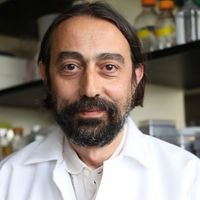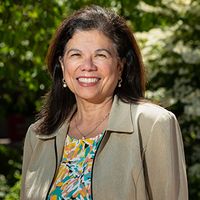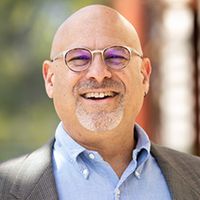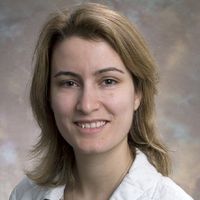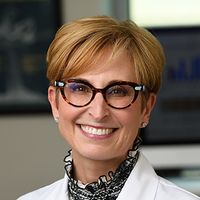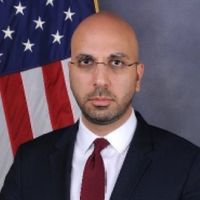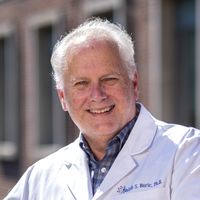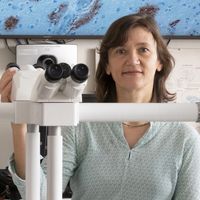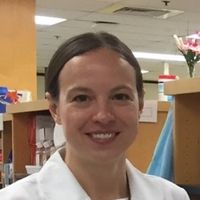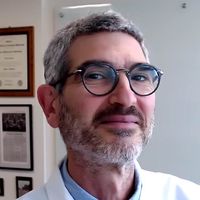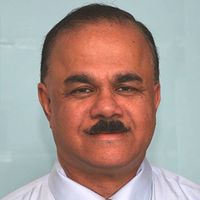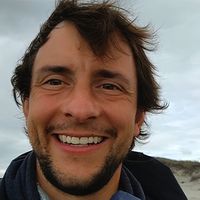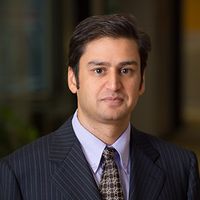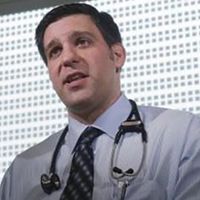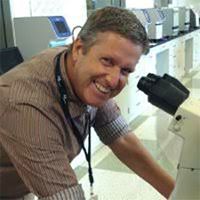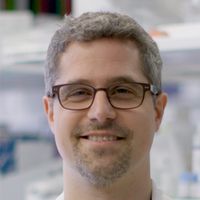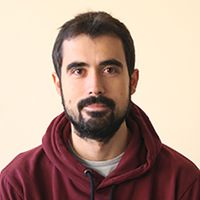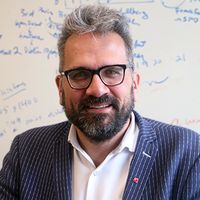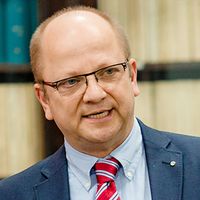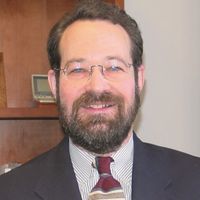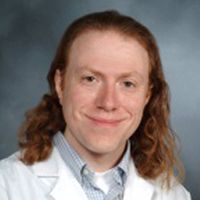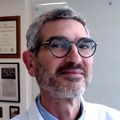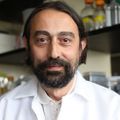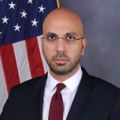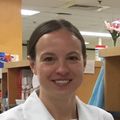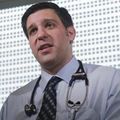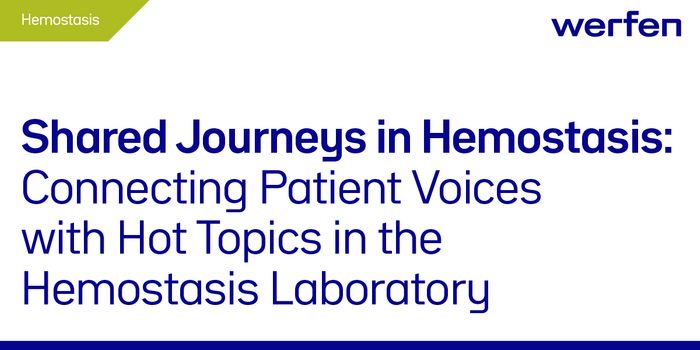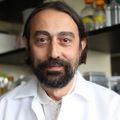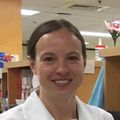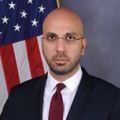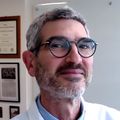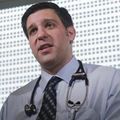Agenda Share
-
OCT 19, 2022 6:00 AM PDT
Keynote Presentation: A Newcastle Disease Virus-Based COVID-19 Vaccine with Live Q&A
Adolfo Garcia-Sastre, PhD
Professor, Departments of Microbiology and Medicine, Tisch Cancer Center Icahn School of Medicine at Mount SinaiBIOGRAPHY -
OCT 19, 2022 7:30 AM PDT
Keynote Presentation: The Direct and Indirect Impact of the COVID-19 Pandemic on Children with Live Q&A
Scott A. Rivkees, MD
Professor of Practice and Vice Chair, Department of Health Services, Policy and Practice Brown University School of Public HealthBIOGRAPHY -
OCT 19, 2022 8:15 AM PDT
Influenza: An Underestimated Threat
Ari Frenkel, M.D., M.P.H.
Co-founder and Chief Medical Officer of Arkstone Medical SolutionsBIOGRAPHYSponsored By: Thermo Fisher Scientific -
OCT 19, 2022 9:00 AM PDT
Keynote Presentation: The Future of Covid-19: Expectations and Lessons with Live Q&A
Ali H. Mokdad, PhD
Chief Strategy Officer, Population Health, University of Washington; Director, Middle Eastern Initiatives Professor, Health Metrics Sciences Institute for Health Metrics and EvaluationBIOGRAPHY -
OCT 19, 2022 9:45 AM PDT
Microbial Air Monitoring Facilitates Disease Surveillance and Outbreak Response
-
OCT 19, 2022 10:30 AM PDT
Keynote Presentation: SARS-CoV-2 and COVID-19: Natural History, Diagnosis and Monitoring: Lessons Learned with Live Q&A
Yvonne (Bonnie) Maldonado, MD
Senior Associate Dean for Faculty Development and Diversity, Taube Endowed Professor of Global Health and Infectious Diseases, Professor of Pediatrics and of Epidemiology and Population Health, Chief, Division of Pediatric Infectious Diseases, Stanford University School of Medicine, Medical Director, Infection Prevention and Control and Attending Physician, Lucile Packard Children's Hospital at StanfordBIOGRAPHY -
OCT 19, 2022 12:00 PM PDT
Keynote Presentation: Advancing Toward Recovery from Post-Acute Sequelae of SARS-CoV-2 Infection (PASC): The NIH RECOVER Initiative with Live Q&A
Walter Koroshetz, MD
Director of the National Institute of Neurological Disorders and Stroke (NINDS), National Institutes of HealthBIOGRAPHY -
OCT 19, 2022 1:00 PM PDT
Panel Presentation: COVID-19 Testing: Results and Recommendations from the Coronavirus Standards Working Group
Marc Salit, PhDDirector, Joint Initiative for Metrology in Biology, St...Eric Morreale, PhDDirector of Product Management at LGC Clinical Diagnost... -
OCT 19, 2022 1:30 PM PDT
A Phase 1 Trial of Cyclosporine for Hospitalized Patients with COVID-19
-
Evolution of SARS-CoV-2
-
mRNA Variant Vaccines as a Second Boost: results from the COVID-19 Variant Immunologic Landscape Trial (COVAIL Trial)
Nadine Rouphael, MD
Professor of Medicine, Infectious Diseases Division, Department of Medicine, Emory University, Executive Director, Hope ClinicBIOGRAPHY -
SARS-CoV-2 Interactions with the Host Innate Immune Response and the Ubiquitin System
Ricardo Rajsbaum, PhD.
Associate Professor, Department of Medicine, Director, Center for Virus-Host-Innate Immunity (CVHII), Institute for Infectious and Inflammatory Diseases, Rutgers University, New Jersey Medical School Cancer CenterBIOGRAPHY -
Sex Differences and Effects of Pregnancy on Symptoms and Severity of COVID-19
Sabra L. Klein, PhD
Professor, Department of Molecular Microbiology & Immunology, Biochemistry & Molecular Biology and International Health, John Hopkins Bloomberg School of Public Health, Co-director, Center for Women's Health, Sex, and Gender ResearchBIOGRAPHY -
Variant-Resistant Antibody Recognition from a Global Consortium
-
MAY 04, 2022 6:00 AM PDT
Keynote Presentation: Toward Universal Coronavirus Vaccines: From Concept to Clinic
Kayvon Modjarrad, MD, PhD
Director, Emerging Infectious Diseases Branch Walter Reed Army Institute of Research Medical Officer, Civilian, Department of the Army, Associate Professor of Medicine, Uniformed Services UniversityBIOGRAPHY -
MAY 04, 2022 7:30 AM PDT
Keynote Presentation: SARS-CoV2: Rapid Response Platforms for Pandemic Virus Control in the 21st Century
Ralph S. Baric, PhD
Kenan Distinguished Professor of Epidemiology, Gillings School of Global Public Health and Microbiology and Immunology School of Medicine, University of North CarolinaBIOGRAPHY -
MAY 04, 2022 9:00 AM PDT
Keynote Presentation: After the Mandates End: Preparing for the Next COVID-19 Variant
Abraham Flaxman, PhD
Associate Professor, Health Metrics Sciences, Institute for Health Metrics and Evaluation (IHME), University of WashingtonBIOGRAPHY -
MAY 04, 2022 10:30 AM PDT
Keynote Presentation: Covid-19: Variants Have Changed the Endgame
Professor Salim S. Abdool Karim, FRS
Director: CAPRISA, CAPRISA Professor of Global Health: Department of Epidemiology, Mailman School of Public Health, Columbia UniversityBIOGRAPHY -
MAY 04, 2022 10:30 AM PDT
Neuropathology of SARS-CoV-2 as Revealed by Spatial Biology
Susanne Krasemann, MD, PhD
Group Leader, Institute of Neuropathology at the University Medical Center Hamburg-Eppendorf, UKE; Head of the Core Facility, Experimental Pathology "Mouse Patho", UKEBIOGRAPHYSponsored By: NanoString Technologies -
MAY 04, 2022 12:00 PM PDT
Panel Presentation: Responding to SARS-CoV-2 Variants, such as Omicron: Detection and Surveillance
Vanessa Lacey, PhDStaff Scientist, Molecular Biology, Clinical Applicatio...Jelena Feenstra, PhDSenior Manager, Global Scientific Communications, Therm... -
MAY 04, 2022 1:30 PM PDT
Panel Presentation: Advance your High-Throughput Workflow with Sample Preparation and Automation
Hannah SaundersManager, Clinical Sample Preparation R&D, Thermo Fisher...Fan Liu, PhDStaff Engineer, Systems Design, Thermo Fisher Scientifi...Lillie ManleyScientist III, Clinical Sample Preparation R&D, Thermo... -
MAY 04, 2022 1:30 PM PDT
Panel Presentation: Optimized Sample Processing and NGS Techniques for Wastewater-Monitoring of SARS-CoV-2
Jonathan Shaffer, PhD, MBADirector, R&D, NGS Assay Technologies, QIAGENDominic O'Neil, MS, MBADirector of Microbiome Product Development, QIAGEN -
MAY 04, 2022 3:00 PM PDT
Deep Spatiotemporal Insights into COVID-19: a Multi-organ Study
-
COVID: How Did We Get Here and Where Are We Going?
Andrew Noymer, PhD
Epidemiologist and Population Health Scientist, Associate Professor, Department of Population Health and Disease Prevention, University of California, IrvineBIOGRAPHY -
COVID Testing: The Key to the Beginning, Middle & End of the Global Pandemic
Mara G. Aspinall
Managing Director, Health Catalysts Group and Professor of Practice, Biomedical Diagnostics, Arizona State UniversityBIOGRAPHY -
Epistatic Interactions Among SARS-CoV-2 Spike Amino Acids Required for Viability of Variants of Concern
Jeremy Luban, MD
Professor, David J. Freelander Chair in AIDS Research, Program in Molecular Medicine, Biochemistry & Molecular Biotechnology, University of Massachusetts Medical SchoolBIOGRAPHY -
Neuropathology of SARS-CoV-2 Infection in Aged Non-human Primates
Tracy Fischer, PhD
Associate Professor, Tulane National Primate Research Center, Division of Comparative PathologyBIOGRAPHY -
Top 10 Lessons Learned from COVID with a Focus on Minority Populations and a Way Forward
Peter Chin-Hong, MD
Associate Dean, Regional Campuses, Professor of Medicine, Division of Infectious Diseases, University of California, San FranciscoBIOGRAPHY
-
OCT 13, 2021 6:00 AM PDT
Keynote Presentation: Discovery and Biology of Protective SARS-CoV-2 Human Monoclonal Antibodies
James Crowe, MD
Director of the Vanderbilt Vaccine Center, Ann Scott Carell Professor of Pediatrics, Pathology, Microbiology and ImmunologyBIOGRAPHY -
OCT 13, 2021 7:30 AM PDT
Keynote Presentation: Impact of New Escape Variants and Waning Immunity on the Covid-19 Pandemic
Ali H. Mokdad, PhD
Chief Strategy Officer, Population Health, University of Washington; Director, Middle Eastern Initiatives Professor, Health Metrics Sciences Institute for Health Metrics and EvaluationBIOGRAPHY -
OCT 13, 2021 9:00 AM PDT
Keynote Presentation: Costly Closures: The Return on Investment in COVID-19 Prevention for Retail, School, Sports, and Entertainment
-
OCT 13, 2021 10:30 AM PDT
Altered MicroRNA Expression in COVID-19 Patients Accurately Identifies of SARS-CoV-2 Infection
Ryan Farr, PhD
-
OCT 13, 2021 10:30 AM PDT
Spatial Transcriptomic Profiling of Severe COVID-19 Patients
Camilla Margaroli, PhD
Department of Medicine; Division of Pulmonary, Allergy, and Critical Care University of Alabama at BirminghamBIOGRAPHYSponsored By: NanoString Technologies -
OCT 13, 2021 12:00 PM PDT
A Virtual Conversation with Dr. John Moore: COVID Vaccines and Variants
-
OCT 13, 2021 1:30 PM PDT
Panel Presentation: Advantage of Absolute Quantification of Digital PCR in Wastewater Monitoring QIAGEN's Workflow Solutions for SARS-CoV-2 Surveillance
Dominic O'Neil, MS, MBADirector of Microbiome Product Development, QIAGENColin Donohoe, PhDSenior Scientist, Research and Development at QIAGEN -
OCT 13, 2021 1:30 PM PDT
SARS-CoV-2 Related Workflow and Solutions: Detection and Genotyping
Manohar R. Furtado, PhD
Director R&D, Thermo Fisher Scientific, Genetic Testing SolutionsBIOGRAPHYSponsored By: Thermo Fisher Scientific -
OCT 13, 2021 3:00 PM PDT
Accelerating SARS-CoV-2 Genomic Surveillance with High-throughput NGS
-
OCT 13, 2021 3:00 PM PDT
SARS-CoV-2 Neutralizing Antibody Testing for Vaccine Efficacy Assessment
Sean Taylor, MBA, PhD
-
-
OCT 13, 2021 4:30 PM PDT
New Diagnostic Tools to Fight the Pandemic - Screening and Syndromic Testing
-
Rapid and Inexpensive Whole-Genome Sequencing of SARS-CoV-2 Using the "Midnight" Panel
-
SARS-CoV-2 Evolution: Addition by Subtraction
Kevin R. McCarthy, PhD
Assistant Professor, Department of Microbiology and Molecular Genetics, University of Pittsburgh School of Medicine Center for Vaccine ResearchBIOGRAPHY -
Infectious Disease Diagnostics: A Critical Pandemic Preparedness Tool
-
Low-Dose mRNA-1273 COVID-19 Vaccine Generates Durable Memory Enhanced by Cross-reactive T Cells
Daniela Weiskopf, PhD
Research Assistant Professor, Center for Infectious Disease and Vaccine Research, La Jolla Institute for Immunology (LJI)BIOGRAPHY -
COVID Policy in the Vaccine Era
-
APR 14, 2021 6:00 AM PDT
A two-pronged approach to tackle COVID-19: Lessons learned from temporal and spatial expression analysis of infected tissue
Eugenia Z. Ong, PhDSenior Research Fellow, Duke-NUS Medical School Singapo...Joe Poh Sheng Yeong, MBBS PhD Mmed (Path)Associate Faculty, Institute of Molecular and Cell Biol... -
APR 14, 2021 6:00 AM PDT
Novel, high throughput test for detection of SARS-Cov-2 neutralizing antibodies
-
APR 14, 2021 7:30 AM PDT
Keynote Presentation: The impact of the New COVID-19 Variants and Vaccine Rollout on the pandemic
Ali H. Mokdad, PhD
Chief Strategy Officer, Population Health, University of Washington; Director, Middle Eastern Initiatives Professor, Health Metrics Sciences Institute for Health Metrics and EvaluationBIOGRAPHY -
APR 14, 2021 9:00 AM PDT
Keynote Presentation: What the NIH Serosurvey Tells Us So Far and Why We Should Try to Develop a Broadly Protective/Universal Beta-Coronavirus Vaccine
Matthew J. Memoli, MD, MS
Director, LID Clinical Studies Unit, Laboratory of Infectious Diseases, National Institute of Allergy and Infectious Diseases, National Institutes of HealthBIOGRAPHY -
APR 14, 2021 10:30 AM PDT
Keynote Presentation: New Vaccine and Antiviral Strategies for COVID-19
Adolfo Garcia-Sastre, PhD
Professor, Departments of Microbiology and Medicine, Tisch Cancer Center Icahn School of Medicine at Mount SinaiBIOGRAPHY -
APR 14, 2021 12:00 PM PDT
New Challenges for SARS-CoV-2 Diagnostics: Viral Load Testing and Variant Strain Genotyping
Russell Garlick, PhDChief Scientific Officer, LGC SeraCareNathan A. Ledeboer, PhDProfessor and Vice Chair, Pathology; Medical Director,... -
APR 14, 2021 12:00 PM PDT
Solutions for SARS-CoV-2 Strain Lineage Surveillance
Stephen Jackson
Associate Director, Product Applications Genetic Sciences Division, Thermo Fisher ScientificBIOGRAPHYSponsored By: Thermo Fisher Scientific -
APR 14, 2021 1:30 PM PDT
Automated Solutions for SARS-CoV-2 Variant Identification and Surveillance
Anthony Tong, PhDDirector of Product Management, BGISubodh NimkarSenior Product Manager, Complete Genomics Facility, MGI -
APR 14, 2021 1:30 PM PDT
Molecular Testing for the Detection and Strain Identification of SARS-CoV-2
Manohar R. Furtado, PhD
Director R&D, Thermo Fisher Scientific, Genetic Testing SolutionsBIOGRAPHYSponsored By: Thermo Fisher Scientific -
-
APR 14, 2021 3:00 PM PDT
Quick and Easy Sequencing of SARS-CoV-2 to Identify Variants of Concern
-
APR 14, 2021 4:30 PM PDT
How RT-PCR Testing Allows Labcorp to Perform National SARS-CoV-2 Pandemic Surveillance
Brian Krueger, PhD
-
Is SNP Genotyping a Better Approach for Monitoring for Known Variants of Concern
Richard Michelmore
Distinguished Professor and Director, The Genome Center, Genome and Biomedical Sciences Facility, University of California, DavisBIOGRAPHY -
New Technologies for Accessible, Durable and Broadly Protective Coronavirus Vaccines
Corey Casper, M.D., MPH
CEO, IDRI; Clinical Professor of Medicine and Global Health, University of Washington; Affiliate Professor, Vaccine and Infectious Disease Division, Fred Hutch Cancer Research CenterBIOGRAPHY -
SARS-CoV-2 - Dynamics of the COVID-19 Epidemic
Harm van Bakel, PhD
Assistant Professor of Genetics and Genomic Sciences, Icahn School of Medicine at Mount SinaiBIOGRAPHY -
The Next Big Question: Genomic Surveillance of SARS-CoV-2
-
The Rapid Development of COVID-19 Vaccines
Paul Goepfert
Professor of Medicine, University of Alabama at Birmingham Director, Alabama Vaccine Research Clinic (AVRC)BIOGRAPHY
-
DEC 03, 2020 6:00 AM PST
Keynote Presentation: Facial Masking for COVID-19: Transmission, Severity and Immunity
Monica Gandhi, MD, MPH
Professor of Medicine and Associate Chief, Division of HIV, Infectious Diseases, and Global Medicine, UCSF, Director, UCSF-Gladstone Center for AIDS Research (CFAR)BIOGRAPHY -
DEC 03, 2020 7:30 AM PST
Keynote Presentation: Prevalence of SARS-CoV-2 Immunity in Those Undiagnosed with COVID-19 in the U.S.
Matthew J. Memoli, MD, MS
Director, LID Clinical Studies Unit, Laboratory of Infectious Diseases, National Institute of Allergy and Infectious Diseases, National Institutes of HealthBIOGRAPHY -
-
DEC 03, 2020 9:00 AM PST
Transmission Dynamics of SARS-CoV-2: Inference and Projection
Jeffrey Shaman
Professor of Environmental Health Sciences, Columbia University Mailman School of Public HealthBIOGRAPHY -
DEC 03, 2020 10:00 AM PST
Keynote Presentation: COVID-19 Projections for the United States
Ali H. Mokdad, PhD
Chief Strategy Officer, Population Health, University of Washington; Director, Middle Eastern Initiatives Professor, Health Metrics Sciences Institute for Health Metrics and EvaluationBIOGRAPHY -
DEC 03, 2020 10:30 AM PST
Accelerating vaccine development using a next generation microfluidic CE platform
-
DEC 03, 2020 10:30 AM PST
The Immunology of COVID-19: A dynamic immune signature for prognosis and spatial transcriptomics of lung tissue
Arutha Kulasinghe, PhDPeter Doherty NHMRC Early Career Fellow at the Queensla...Miguel Muñoz-Ruiz, PhDPostDoc fellow at the Immunosurveillance Lab at the Fra... -
DEC 03, 2020 12:00 PM PST
Advancing SARS-CoV-2 Diagnostics Through Standardization and Quantitation
Russell Garlick, PhDChief Scientific Officer, LGC SeraCareMarc Salit, PhDDirector, Joint Initiative for Metrology in Biology, St... -
DEC 03, 2020 1:30 PM PST
Using an ARIES® Laboratory Developed Test for SARS-CoV-2 to Respond to the COVID-19 Pandemic in Louisville, KY
Leslie A. Wolf, PhD, HCLD (ABB)
Division of Infectious Diseases | University of LouisvilleBIOGRAPHYSponsored By: Luminex - A DiaSorin Company -
DEC 03, 2020 3:00 PM PST
Novel SARS-Cov-2 Neutralization Antibody test, performance and applications
-
DEC 03, 2020 4:30 PM PST
An Iterative Approach to Structure-based in silico to in vivo Development of Combinatorial Anti-SARS-CoV-2 Therapy
Garth D. Ehrlich, PhD, FAAAS
Professor of Microbiology & Immunology, Professor of Otolarynology-Head and Neck Surgery, Drexel University College of MedicineBIOGRAPHY
-
COVID-19 RNA and DNA vaccines
Deborah Fuller, PhD
Professor, Department of Microbiology, University of Washington School of Medicine, Division Chief, Infectious Diseases and Translational Medicine, Washington National Primate Research CenterBIOGRAPHY -
Development, assessment and commercialization of serological SARS CoV-2 tests - an interdisciplinary success story
Mark Dürkop, PhD
CEO Novasign GmbH, Project Lead BOKU - Department of Biotechnology, University of Natural Resources and Life Sciences, ViennaBIOGRAPHY -
Immunity, Aging and COVID-19 : where do we stand?
Janko Nikolich-Zugich, MD, PhD
Bowman Professor and Head, Department of Immunobiology, Co-Director, University of Arizona Center on Aging, University of Arizona College of Medicine-TucsonBIOGRAPHY -
NGS Workflows for Studying Infectious Disease
-
Putting COVID-19 Into Context
-
Recent insights into SARS-CoV-2 intra-host population dynamics
Todd Treangen, PhD
Assistant Professor of Computer Science, Department of Bioengineering, Rice UniversityBIOGRAPHY
-
SEP 17, 2020 6:00 AM PDT
Keynote Presentation: The American Response to COVID-19: what went right, what went wrong
-
SEP 17, 2020 7:30 AM PDT
Keynote Presentation: IHME Covid-19 projections for the US: Strategies to reduce the spread
Ali H. Mokdad, PhD
Chief Strategy Officer, Population Health, University of Washington; Director, Middle Eastern Initiatives Professor, Health Metrics Sciences Institute for Health Metrics and EvaluationBIOGRAPHY -
SEP 17, 2020 9:00 AM PDT
Coronaviruses: History, Biology and Innate Immune Antagonism
Susan R. Weiss, PhD
Professor and Vice Chair Department of Microbiology, Co-Director, Penn Center for Research on Coronaviruses and Other Emerging Pathogens Perelman school of Medicine University of PennsylvaniaBIOGRAPHY -
-
SEP 17, 2020 10:00 AM PDT
Keynote Presentation: Discovery of SARS-CoV-2 antivirals through large-scale repositioning studies
Sumit Chanda, PhD
Director & Professor, Immunity & Pathogenesis Program, Sanford Burnham Prebys Medical Discovery InstituteBIOGRAPHY -
SEP 17, 2020 11:00 AM PDT
Host and Viral Transcriptomes During COVID-19 Infection
Christopher E. Mason, PhD
Associate Professor of Genomics, Physiology, and Biophysics at Weill Cornell Medicine and the Director of the WorldQuant Initiative for Quantitative PredictionBIOGRAPHY -
SEP 17, 2020 11:00 AM PDT
Innovative Reagent Solutions in Virology Research
Mathis LaffenetreLife Sciences Technology Platform Metabolic Diseases Re...Nicolas PierreLife Sciences Technology Platforms Leader, Discovery Re... -
SEP 17, 2020 11:00 AM PDT
Lung-Chip - Accelerating Study of Viral Infection and Therapeutics
-
SEP 17, 2020 12:00 PM PDT
Advanced NGS solutions for SARS-CoV-2 monitoring and insights
Cris Kinross
Global Market Development, Thermo Fisher ScientificBIOGRAPHYSponsored By: Thermo Fisher Scientific -
SEP 17, 2020 12:00 PM PDT
Antibody therapy against SARS-CoV-2: A Global Collaboration
-
SEP 17, 2020 12:00 PM PDT
Important considerations for choosing a SARS-CoV-2 assay
-
SEP 17, 2020 1:00 PM PDT
Keynote Presentation: SARS-CoV-2 Susceptibility, Transmission and Reinfection in Domestic Cats
Jürgen A. Richt, DVM, PhD
Regents Distinguished Professor at KSU, University Distinguished Professor, Director - Center on Emerging & Zoonotic Infectious Diseases (CEZID), NIH Center of Biomedical Research ExcellenceBIOGRAPHY -
SEP 17, 2020 2:00 PM PDT
Keynote Presentation: The formation of an International Collaborative Network to find COVID-19 Therapeutics
Jacqueline FabiusChief Operating Officer, Quantitative Biosciences Insti...Nevan Krogan, PhDProfessor of Cellular and Molecular Pharmacology, UCSF,... -
SEP 17, 2020 3:30 PM PDT
Discovery of a druggable pocket in SARS-CoV-2 Spike: New avenue to defeat COVID-19?
Imre Berger
-
SEP 17, 2020 3:30 PM PDT
Repurposing in COVID-19: Can we identify new antivirals
Sara Cherry, PhD
Professor of Pathology and Laboratory Medicine and Microbiology, Perelman School of Medicine, University of PennsylvaniaBIOGRAPHY -
SEP 17, 2020 3:30 PM PDT
SARS-CoV-2 Testing Today and a New Serology Approach For High Throughput Screening
Russell Garlick, PhDChief Scientific Officer, LGC SeraCareRichard HughesAssociate Scientific Director at LGCJoel Lefferts, PhD, HCLD, DABCCAssistant Professor of Pathology and Laboratory Medicin... -
SEP 17, 2020 4:30 PM PDT
COVID-19 T-Cell Data: Mapping Out SARS-CoV-2 Antigen & T-Cell Repertoires
Sean NolanDistinguished EngineerPatrick Raber, PhDSenior Manager, Research and Business DevelopmentThomas Snyder, PhDVP, Research, immunoSEQ Dx -
SEP 17, 2020 4:30 PM PDT
Ultra-fast one-step RT-PCR protocol for the detection of SARS-CoV-2
-
Insights into SARS-CoV-2 Biology
Adolfo Garcia-Sastre, PhD
Professor, Departments of Microbiology and Medicine, Tisch Cancer Center Icahn School of Medicine at Mount SinaiBIOGRAPHY -
Testing for SARS-CoV-2: The Cleveland Clinic Experience
Gary Procop, MD, MS
Medical Director & Co-Chair, Enterprise Laboratory Stewardship Committee, Enterprise Medical Operations, & Director of Microbiology, Virology, Mycology & Parasitology, Clevelaland ClinicBIOGRAPHY -
The detection, characterization, and surveillance of the SARS-CoV-2 viral genome using hybridization capture-based NGS assay
Dorottya Nagy-Szakal, MD PhD
Chief Medical Officer, Biotia, Research Assistant Professor, Department Cell Biology/College of Medicine, SUNY Downstate Health Sciences UniversityBIOGRAPHY
-
JUN 17, 2020 6:00 AM PDT
Enhanced, rapid NGS tools for viral research
Cris Kinross
Global Market Development, Thermo Fisher ScientificBIOGRAPHYSponsored By: Thermo Fisher Scientific -
JUN 17, 2020 6:00 AM PDT
Rapid Development of Multiplex Serological Assays for COVID-19 Beyond
Steve AngeloniSenior Field Applications Scientist, LuminexNicole Pecora, MD, PhDAssistant Professor in Pathology and Laboratory Medicin... -
JUN 17, 2020 6:00 AM PDT
Role of serology in the next phase of COVID-19 investigation and response
Linfa Wang, PhD
-
JUN 17, 2020 7:30 AM PDT
Advanced solutions for viral detection and immune monitoring
Joel Guthridge, PhDAssistant Member, Arthritis and Clinical Immunology Dir...Petter Brodin, MD, PhDAssociate Professor and consultant physician Science fo... -
JUN 17, 2020 7:30 AM PDT
Development of Luminex Based Serological Test for COVID-19 Diagnosis and Monitoring
Imad Tarhoni, MD, PhD
Postdoctoral Fellow at Rush University Medical Center in ChicagoBIOGRAPHYSponsored By: Luminex - A DiaSorin Company -
JUN 17, 2020 7:30 AM PDT
Effective RNA extraction for COVID-19 testing
Gabriel Fernandez de PierolaGeneral Manager - Genomics & Diagnostic Solutions Cyti...Christopher Norey, PhDR&D Leader, Cytiva (formerly GE Healthcare Life Science... -
JUN 17, 2020 9:00 AM PDT
Keynote Presentation: Another New Coronavirus?: The Coronaviruses of the 21st Century
Stephen S. Morse, PhD, FAAM, F.A.C.E.
Professor of Epidemiology, Director, Infectious Disease Epidemiology Certificate, Columbia University, Mailman School of Public HealthBIOGRAPHY -
JUN 17, 2020 10:30 AM PDT
Applications of Flow Cytometry and Imaging Flow Cytometry to COVID-19 Research
Haley R. Pugsley, PhDManager, Senior ScientistKamala Tyagarajan, PhDDirector, Flow Cytometry Assays & Application -
JUN 17, 2020 10:30 AM PDT
Strategies and Challenges for COVID-19 Antibody Development
-
JUN 17, 2020 12:00 PM PDT
High-Throughput Assay for Monitoring COVID19 Antibodies and Their Isotypes
Susan Zolla-Pazner, PhD
Professor of Medicine, Division of Infectious Diseases Icahn School of Medicine at Mount SinaiBIOGRAPHYSponsored By: Luminex - A DiaSorin Company -
JUN 17, 2020 12:00 PM PDT
Luminex®: Flexible Solutions for SARS-CoV-2 Detection
Aaron P. Benfield, PhDSenior Director, Molecular ApplicationsSherry A. Dunbar, PhD, MBASenior Director, Global Scientific Affairs -
JUN 17, 2020 12:00 PM PDT
Panel discussion: Critical design considerations for COVID-19 rapid POC diagnostic test development
Klaus Hochleitner, PhDGlobal Technology Lead, Diagnostics, CytivaBrendan O'Farrell, PhDPresident and Co-Founder, DCN DiagnosticsDarren RowlesPresident and CEO, Sona NanotechDavid WilsonCommercial Director, Diagnostics, Avacta Life SciencesLee JenkinsSenior Product Leader, Cytiva -
-
JUN 17, 2020 1:30 PM PDT
Insights into the Pathogenesis of COVID-19 as Revealed by Spatial Biology
Joseph M. Beechem, PhDCHIEF SCIENTIFIC OFFICER AND Senior Vice President Of R...Christopher E. Mason, PhDAssociate Professor of Genomics, Physiology, and Biophy...Robert E. Schwartz, PhDAssistant Professor of Medicine, Weill Medical College... -
JUN 17, 2020 1:30 PM PDT
Will we have a vaccine for COVID-19? 5 reasons for optimism!
Rob Kozak, PhD FCCM
Clinical Microbiologist, Sunnybrook Health Sciences Centre, Associate Professor, Department of Laboratory Medicine and Pathobiology, University of TorontoBIOGRAPHY -
JUN 17, 2020 3:00 PM PDT
Accelerating vaccine development using a next generation microfluidic CE platform
-
JUN 17, 2020 3:00 PM PDT
COVID-19: Enrichment and analysis of rare antigen- and virus-specific T cells
Dr. Marcello Stein
Gobal Marketing Manager - Translational Immunology, Miltenyi BiotecBIOGRAPHYSponsored By: Miltenyi Biotec -
JUN 17, 2020 3:00 PM PDT
Surgery as (Un)Usual: Development of Rodent Intracerebroventricular injection Capabilities During COVID-19
-
-
JUN 17, 2020 4:30 PM PDT
Patterns of Intrahost and Interhost variation in SARS-CoV-2
Todd Treangen, PhD
Assistant Professor of Computer Science, Department of Bioengineering, Rice UniversityBIOGRAPHY
-
Coronavirus Webinar Series; Understanding Diagnostic Modalities for SARS-CoV-2
Jamie Evelyn Phillips, MS, PhD
Sr. Scientific Affairs Manager, Roche Diagnostic CorporationBIOGRAPHY
-
APR 02, 2020 6:00 AM PDT
A Multi-Omic Approach to Detection and Characterization of Viral Pathogens and Their Impact on the Immune System
Bill Hunt, MSDirector, Microfluidics Product Management, FluidigmAndrew Quong, PhDChief Science Officer, Fluidigm -
APR 02, 2020 6:00 AM PDT
Enhanced. Rapid Target Identification by NGS for Vaccine Development
Cris Kinross
Global Market Development, Thermo Fisher ScientificBIOGRAPHYSponsored By: Thermo Fisher Scientific -
APR 02, 2020 7:30 AM PDT
COVID-19: Putting together the pieces of the pandemic
-
APR 02, 2020 7:30 AM PDT
From Hendra to Wuhan: emerging bat-borne viruses in a quarter of century
Linfa Wang, PhD
Professor & Director, Emerging Infectious Diseases Program, Duke-NUS Medical School, SingaporeBIOGRAPHY -
APR 02, 2020 8:30 AM PDT
Laboratory Diagnosis of SARS-CoV-2 Infections: Current Status
Yi-Wei Tang, MD, PhD, F(AAM), FIDSA
China Chief Medical Officer of Cepheid at the Danaher Diagnostic Platform in ShanghaiBIOGRAPHY -
APR 02, 2020 8:30 AM PDT
Rapid Discovery of Therapeutic Antibodies for SARS-CoV-2 and Other Viral Pandemics
Anupam Singhal
Product Manager, Antibody Therapeutics, Berkeley Lights, Inc.BIOGRAPHYSponsored By: Berkeley Lights -
APR 02, 2020 10:00 AM PDT
Laboratory Tests for CoVID-19
Jun Wu, PhD
Associate Professor, Pathology, Vice Director of Clinical Laboratory Medicine Center, Shanghai General Hospital, affiliated to Shanghai Jiaotong UniversityBIOGRAPHY -
APR 02, 2020 10:00 AM PDT
SARS-CoV-2 (CoVID-19: Emergence, Biology, and Countermeasures)
Mark R. Denison, MD
Director, Division of Infectious Diseases, Craig-Weaver Professor of Pediatrics, Professor of Pathology, Microbiology & Immunology, Professor at Vanderbilt UniversityBIOGRAPHY -
APR 02, 2020 11:30 AM PDT
COVID-19 infection mechanism, tools for testing and therapeutic antibody development
Manzhu Kang, PhDSenior Scientist of Antibody Research Group at GenScrip...Sean TaylorManager of the Field Applications Group at GenScript US... -
APR 02, 2020 11:30 AM PDT
Implementation of Molecular Diagnostics for SARS-CoV-2
Li Jiang, MD, PhD
Sichuan Academy of Medical Sciences & Sichuan Provincial People's Hospital Sichuan Provincial Center for Clinical Laboratories (SPCCL) -
APR 02, 2020 1:00 PM PDT
PANEL: Specimen Collection and Laboratory Safety
Jason Chen, MDHead of Virology Unit of KingMed DiagnosticsYushen Jiang, MDDeputy Director of Central Lab of DIAN DiagnosticsRuben Luo, PhDNACCCA Board Secretary, Clinical Fellow of UC San Franc...Chengbin Wang, MDChairman of Chinese Society of Laboratory Medicine, Dir...Frank Yang, MD, PhDPathologist (ABP-AP/CP, Hem), Vice President of ADICON... -
APR 02, 2020 1:00 PM PDT
Rapid Response to the Coronavirus Outbreak: How Collaboration Meets the Challenge
Geert Koene, PhD
Biosearch Technologies Market Segment Manager MDx, LGCBIOGRAPHYSponsored By: Biosearch Technologies -
APR 02, 2020 2:30 PM PDT
COVID-19 Total Solutions for Detection and Surveillance
Subodh NimkarSenior Product Manager, Complete Genomics Facility, MGIPan Zhang, PhDLaboratory Director at BGI
-
APR 02, 2020 2:30 PM PDT
Opportunities for using PacBio Long-read Sequencing for COVID-19 Research
Meredith Ashby, PhD
Coronavirus Series

A novel coronavirus emerged in China in late 2019 and has since been officially named by the World Health Organization (WHO) as SARS-CoV-2. Labroots will be working to educate the community about this pathogen and the disease it causes, i.e. COVID-19, in an ongoing series of virtual events.
Our 2020 and 2021 virtual events in our ongoing Coronavirus Series, and this year's 1st event held on May 4, 2022 continue to be a tremendous success. These past events are now available for on-demand viewing on the Labroots website. Our next set of presentations will go live on October 19, 2022.
In this year’s event you can learn more about:
- Epidemiology of COVID-19 - Previous, Current, and Future Trends
- Symptoms and Severity of the Disease
- Variants and How the Virus Changed
- Testing, Research, and Diagnostics
- Prevention and Containment, and Transmission
- Vaccines (Host Immune Response - Clinical Outcomes with Vaccines)
- Future Vaccines - mRNA Promise for Other Infections and Diseases
- Global Preparedness
- Lessons Learned
The virus known as SARS-CoV-2 is a member of the coronavirus family and is zoonotic in origin. It is transmissible from animals to humans and is thought to have originated in bats like several other coronaviruses. Researchers are working to learn more about how this virus made the leap from animals to humans and the potential role of an intermediate species.
The SARS-CoV-2 virus has already infected millions of people worldwide. In China, thousands have been killed, leading the World Health Organization to declare an international health emergency, one of only four that have ever been declared.
Researchers have found evidence that the virus can be transmitted by asymptomatic individuals and are working tirelessly to find ways to treat the fever, respiratory illness, cough, and breathing difficulties it causes.
This free event does not require any travel and will remain ongoing; webinars will continue to occur in the future as we find out more about this pathogen. The content will be available for unlimited, on-demand viewing and the global community will be able to interact using chat sessions and live-streaming. This seamless connectivity will be available on any desktop or mobile device so you can view, learn, and interact.
Call for Posters — Labroots seeks poster submissions from individuals, teams, laboratories, and companies for our virtual poster hall. Virtual poster sessions offer the opportunity to present data to a global audience via a PDF poster (and optional audio/video summary) and discuss results with interested colleagues across the globe through email and our networking lounge. Plan now to have your poster included in the Coronavirus Virtual Event Series and this virtual event.
The deadline for electronic submission of your poster title, abstract, and poster PDF is Friday 14th of October 2022 at 5:00 pm PT. Submission is free. Submit your abstract here.
Continuing Education
Labroots is approved as a provider of continuing education programs in the clinical laboratory sciences by the ASCLS P.A.C.E. ® Program. By attending this virtual event series, you can earn 1 Continuing Education credit per presentation.
Connect with us!
When you attend the event remember to use the hashtag #LRcoronavirus to follow the conversation and connect with other members of the global Coronavirus research community! Follow @Labroots on Twitter and @LabrootsInc on Facebook to connect with our team and stay up to date with the latest Trending News in Coronavirus research.
Speakers Share
-
Julia Han Noll, MS
University of Pennsylvania
BIOGRAPHY
-
Marc Salit, PhD
Director, Joint Initiative for Metrology in Biology, Stanford University
BIOGRAPHY
-
Eric Morreale, PhD
Director of Product Management at LGC Clinical Diagnostics
BIOGRAPHY
-
Walter Koroshetz, MD
Director of the National Institute of Neurological Disorders and Stroke (NINDS), National Institutes of Health
BIOGRAPHY
-
Yvonne (Bonnie) Maldonado, MD
Senior Associate Dean for Faculty Development and Diversity, Taube Endowed Professor of Global Health and Infectious Diseases, Professor of Pediatrics and of Epidemiology and Population Health, Chief, Division of Pediatric Infectious Diseases, Stanford University School of Medicine, Medical Director, Infection Prevention and Control and Attending Physician, Lucile Packard Children's Hospital at Stanford
BIOGRAPHY
-
Eric Clement Arakel
Global Project Manager for Sartorius
BIOGRAPHY
-
Ali H. Mokdad, PhD
Chief Strategy Officer, Population Health, University of Washington; Director, Middle Eastern Initiatives Professor, Health Metrics Sciences Institute for Health Metrics and Evaluation
BIOGRAPHY
-
Ari Frenkel, M.D., M.P.H.
Co-founder and Chief Medical Officer of Arkstone Medical Solutions
BIOGRAPHY
-
Scott A. Rivkees, MD
Professor of Practice and Vice Chair, Department of Health Services, Policy and Practice Brown University School of Public Health
BIOGRAPHY
-
Amanda Grimm, PSM
Senior Segment Marketing Manager-ADD, GenScript USA Inc
BIOGRAPHY
-
Erica Ollmann Saphire, PhD
Professor, La Jolla Institute for Immunology
BIOGRAPHY
-
Kei Sato, PhD
Professor, The Institute of Medical Science, University of Tokyo
BIOGRAPHY
-
Sabra L. Klein, PhD
Professor, Department of Molecular Microbiology & Immunology, Biochemistry & Molecular Biology and International Health, John Hopkins Bloomberg School of Public Health, Co-director, Center for Women's Health, Sex, and Gender Research
BIOGRAPHY
-
Adolfo Garcia-Sastre, PhD
Professor, Departments of Microbiology and Medicine, Tisch Cancer Center Icahn School of Medicine at Mount Sinai
BIOGRAPHY
-
Ricardo Rajsbaum, PhD.
Associate Professor, Department of Medicine, Director, Center for Virus-Host-Innate Immunity (CVHII), Institute for Infectious and Inflammatory Diseases, Rutgers University, New Jersey Medical School Cancer Center
BIOGRAPHY
-
Nadine Rouphael, MD
Professor of Medicine, Infectious Diseases Division, Department of Medicine, Emory University, Executive Director, Hope Clinic
BIOGRAPHY
-
Arutha Kulasinghe, PhD
NHMRC Research Fellow, The University of Queensland
BIOGRAPHY
-
Dominic O'Neil, MS, MBA
Director of Microbiome Product Development, QIAGEN
BIOGRAPHY
-
Jonathan Shaffer, PhD, MBA
Director, R&D, NGS Assay Technologies, QIAGEN
BIOGRAPHY
-
Hannah Saunders
Manager, Clinical Sample Preparation R&D, Thermo Fisher Scientific
BIOGRAPHY
-
Fan Liu, PhD
Staff Engineer, Systems Design, Thermo Fisher Scientific
BIOGRAPHY
-
Lillie Manley
Scientist III, Clinical Sample Preparation R&D, Thermo Fisher Scientific
BIOGRAPHY
-
Jelena Feenstra, PhD
Senior Manager, Global Scientific Communications, Thermo Fisher Scientific
BIOGRAPHY
-
Vanessa Lacey, PhD
Staff Scientist, Molecular Biology, Clinical Applications, Thermo Fisher Scientific
BIOGRAPHY
-
Professor Salim S. Abdool Karim, FRS
Director: CAPRISA, CAPRISA Professor of Global Health: Department of Epidemiology, Mailman School of Public Health, Columbia University
BIOGRAPHY
-
Susanne Krasemann, MD, PhD
Group Leader, Institute of Neuropathology at the University Medical Center Hamburg-Eppendorf, UKE; Head of the Core Facility, Experimental Pathology "Mouse Patho", UKE
BIOGRAPHY
-
Abraham Flaxman, PhD
Associate Professor, Health Metrics Sciences, Institute for Health Metrics and Evaluation (IHME), University of Washington
BIOGRAPHY
-
Ralph S. Baric, PhD
Kenan Distinguished Professor of Epidemiology, Gillings School of Global Public Health and Microbiology and Immunology School of Medicine, University of North Carolina
BIOGRAPHY
-
Kayvon Modjarrad, MD, PhD
Director, Emerging Infectious Diseases Branch Walter Reed Army Institute of Research Medical Officer, Civilian, Department of the Army, Associate Professor of Medicine, Uniformed Services University
BIOGRAPHY
-
Tracy Fischer, PhD
Associate Professor, Tulane National Primate Research Center, Division of Comparative Pathology
BIOGRAPHY
-
Mara G. Aspinall
Managing Director, Health Catalysts Group and Professor of Practice, Biomedical Diagnostics, Arizona State University
BIOGRAPHY
-
Peter Chin-Hong, MD
Associate Dean, Regional Campuses, Professor of Medicine, Division of Infectious Diseases, University of California, San Francisco
BIOGRAPHY
-
Andrew Noymer, PhD
Epidemiologist and Population Health Scientist, Associate Professor, Department of Population Health and Disease Prevention, University of California, Irvine
BIOGRAPHY
-
Jeremy Luban, MD
Professor, David J. Freelander Chair in AIDS Research, Program in Molecular Medicine, Biochemistry & Molecular Biotechnology, University of Massachusetts Medical School
BIOGRAPHY
-
Jay Bhattacharya, MD, PhD
Professor of Medicine, Stanford University
BIOGRAPHY
-
Amesh A. Adalja, MD
Senior Scholar, Johns Hopkins Center for Health Security
BIOGRAPHY
-
Daniela Weiskopf, PhD
Research Assistant Professor, Center for Infectious Disease and Vaccine Research, La Jolla Institute for Immunology (LJI)
BIOGRAPHY
-
Patrick Ettenhuber, PhD
Product Owner
BIOGRAPHY
-
Arvind Kothandaraman
General Manager, Specialty Diagnostics
BIOGRAPHY
-
Sean Taylor, MBA, PhD
North American Field Application Scientist Manager, GenScript USA, Inc.
BIOGRAPHY
-
James Caffrey, PhD, MBA
Director Strategic Marketing, Genomics, QIAGEN
BIOGRAPHY
-
Manohar R. Furtado, PhD
Director R&D, Thermo Fisher Scientific, Genetic Testing Solutions
BIOGRAPHY
-
Dominic O'Neil, MS, MBA
Director of Microbiome Product Development, QIAGEN
BIOGRAPHY
-
Colin Donohoe, PhD
Senior Scientist, Research and Development at QIAGEN
BIOGRAPHY
-
John P. Moore, PhD
Professor of Microbiology and Immunology, Weill Cornell Medicine
BIOGRAPHY
-
Ryan Farr, PhD
Research Scientist, Host Response Team, Health and Biosecurity (H&B) at the Australian Centre for Disease Preparedness (ACDP) , CSIRO
BIOGRAPHY
-
Camilla Margaroli, PhD
Department of Medicine; Division of Pulmonary, Allergy, and Critical Care University of Alabama at Birmingham
BIOGRAPHY
-
Blythe Adamson, PhD, MPH
Founder and Epidemiologist, Infectious Economics, LLC
BIOGRAPHY
-
Ali H. Mokdad, PhD
Chief Strategy Officer, Population Health, University of Washington; Director, Middle Eastern Initiatives Professor, Health Metrics Sciences Institute for Health Metrics and Evaluation
BIOGRAPHY
-
James Crowe, MD
Director of the Vanderbilt Vaccine Center, Ann Scott Carell Professor of Pediatrics, Pathology, Microbiology and Immunology
BIOGRAPHY
-
Kevin R. McCarthy, PhD
Assistant Professor, Department of Microbiology and Molecular Genetics, University of Pittsburgh School of Medicine Center for Vaccine Research
BIOGRAPHY
-
Nikki Freed, PhD
Lead at Auckland Genomics, University of Auckland, New Zealand
BIOGRAPHY
-
Brian Krueger, PhD
Associate Vice President, Research and Development, Laboratory Corporation of America
BIOGRAPHY
-
Jordan RoseFigura, PhD
Director of Material Sciences, Swift Biosciences
BIOGRAPHY
-
Pedro Echave, PhD
Global Leader, NGS Product Experts, PerkinElmer
BIOGRAPHY
-
Subodh Nimkar
Senior Product Manager, Complete Genomics Facility, MGI
BIOGRAPHY
-
Anthony Tong, PhD
Director of Product Management, BGI
BIOGRAPHY
-
Manohar R. Furtado, PhD
Director R&D, Thermo Fisher Scientific, Genetic Testing Solutions
BIOGRAPHY
-
Russell Garlick, PhD
Chief Scientific Officer, LGC SeraCare
BIOGRAPHY
-
Nathan A. Ledeboer, PhD
Professor and Vice Chair, Pathology; Medical Director, Medical College of Wisconsin
BIOGRAPHY
-
Stephen Jackson
Associate Director, Product Applications Genetic Sciences Division, Thermo Fisher Scientific
BIOGRAPHY
-
Adolfo Garcia-Sastre, PhD
Professor, Departments of Microbiology and Medicine, Tisch Cancer Center Icahn School of Medicine at Mount Sinai
BIOGRAPHY
-
Matthew J. Memoli, MD, MS
Director, LID Clinical Studies Unit, Laboratory of Infectious Diseases, National Institute of Allergy and Infectious Diseases, National Institutes of Health
BIOGRAPHY
-
Ali H. Mokdad, PhD
Chief Strategy Officer, Population Health, University of Washington; Director, Middle Eastern Initiatives Professor, Health Metrics Sciences Institute for Health Metrics and Evaluation
BIOGRAPHY
-
Shuting Xu, PhD
Field Appication Scientist
BIOGRAPHY
-
Eugenia Z. Ong, PhD
Senior Research Fellow, Duke-NUS Medical School Singapore
BIOGRAPHY
-
Joe Poh Sheng Yeong, MBBS PhD Mmed (Path)
Associate Faculty, Institute of Molecular and Cell Biology (A*STAR) Singapore
-
Harm van Bakel, PhD
Assistant Professor of Genetics and Genomic Sciences, Icahn School of Medicine at Mount Sinai
BIOGRAPHY
-
Gary Schroth, Ph.D.
Vice President and Distinguished Scientist, Illumina
BIOGRAPHY
-
Richard Michelmore
Distinguished Professor and Director, The Genome Center, Genome and Biomedical Sciences Facility, University of California, Davis
BIOGRAPHY
-
Corey Casper, M.D., MPH
CEO, IDRI; Clinical Professor of Medicine and Global Health, University of Washington; Affiliate Professor, Vaccine and Infectious Disease Division, Fred Hutch Cancer Research Center
BIOGRAPHY
-
Paul Goepfert
Professor of Medicine, University of Alabama at Birmingham Director, Alabama Vaccine Research Clinic (AVRC)
BIOGRAPHY
-
Michael Risley, PhD
Chief Development Officer, Yourgene Health
BIOGRAPHY
-
Garth D. Ehrlich, PhD, FAAAS
Professor of Microbiology & Immunology, Professor of Otolarynology-Head and Neck Surgery, Drexel University College of Medicine
BIOGRAPHY
-
Roumen Bogoev, MSc
Head of Segment Marketing, GenScript USA
BIOGRAPHY
-
Leslie A. Wolf, PhD, HCLD (ABB)
Division of Infectious Diseases | University of Louisville
BIOGRAPHY
-
Russell Garlick, PhD
Chief Scientific Officer, LGC SeraCare
BIOGRAPHY
-
Marc Salit, PhD
Director, Joint Initiative for Metrology in Biology, Stanford University
BIOGRAPHY
-
Jeray Thelwell
Mid-Atlantic and Southeast Biotherapeutics Solution Specialists
BIOGRAPHY
-
Arutha Kulasinghe, PhD
Peter Doherty NHMRC Early Career Fellow at the Queensland University of Technology (QUT)
BIOGRAPHY
-
Miguel Muñoz-Ruiz, PhD
PostDoc fellow at the Immunosurveillance Lab at the Francis Crick Institute
BIOGRAPHY
-
Ali H. Mokdad, PhD
Chief Strategy Officer, Population Health, University of Washington; Director, Middle Eastern Initiatives Professor, Health Metrics Sciences Institute for Health Metrics and Evaluation
BIOGRAPHY
-
Arvind Kothandaraman
General Manager, Specialty Diagnostics
BIOGRAPHY
-
Jeffrey Shaman
Professor of Environmental Health Sciences, Columbia University Mailman School of Public Health
BIOGRAPHY
-
Matthew J. Memoli, MD, MS
Director, LID Clinical Studies Unit, Laboratory of Infectious Diseases, National Institute of Allergy and Infectious Diseases, National Institutes of Health
BIOGRAPHY
-
Monica Gandhi, MD, MPH
Professor of Medicine and Associate Chief, Division of HIV, Infectious Diseases, and Global Medicine, UCSF, Director, UCSF-Gladstone Center for AIDS Research (CFAR)
BIOGRAPHY
-
Amesh A. Adalja, MD
Senior Scholar, Johns Hopkins Center for Health Security
BIOGRAPHY
-
Deborah Fuller, PhD
Professor, Department of Microbiology, University of Washington School of Medicine, Division Chief, Infectious Diseases and Translational Medicine, Washington National Primate Research Center
BIOGRAPHY
-
Gary P. Schroth, PhD
Vice President and Distinguished Scientist, Illumina, Inc.
BIOGRAPHY
-
Todd Treangen, PhD
Assistant Professor of Computer Science, Department of Bioengineering, Rice University
BIOGRAPHY
-
Janko Nikolich-Zugich, MD, PhD
Bowman Professor and Head, Department of Immunobiology, Co-Director, University of Arizona Center on Aging, University of Arizona College of Medicine-Tucson
BIOGRAPHY
-
Mark Dürkop, PhD
CEO Novasign GmbH, Project Lead BOKU - Department of Biotechnology, University of Natural Resources and Life Sciences, Vienna
BIOGRAPHY
-
Sean Nolan
Distinguished Engineer
BIOGRAPHY
-
Patrick Raber, PhD
Senior Manager, Research and Business Development
BIOGRAPHY
-
Thomas Snyder, PhD
VP, Research, immunoSEQ Dx
BIOGRAPHY
-
Brian McNally, PhD
Chief Commercial Officer, Molecular Biology Systems, BV
BIOGRAPHY
-
Russell Garlick, PhD
Chief Scientific Officer, LGC SeraCare
BIOGRAPHY
-
Richard Hughes
Associate Scientific Director at LGC
BIOGRAPHY
-
Joel Lefferts, PhD, HCLD, DABCC
Assistant Professor of Pathology and Laboratory Medicine, Geisel School of Medicine at Dartmouth and Assistant Director, Clinical Genomics and Advanced Technology (CGAT) Laboratory
BIOGRAPHY
-
Imre Berger
Founder and Managing Director of the Max Planck Bristol Centre for Minimal Biology
BIOGRAPHY
-
Sara Cherry, PhD
Professor of Pathology and Laboratory Medicine and Microbiology, Perelman School of Medicine, University of Pennsylvania
BIOGRAPHY
-
Jacqueline Fabius
Chief Operating Officer, Quantitative Biosciences Institute (QBI)
BIOGRAPHY
-
Nevan Krogan, PhD
Professor of Cellular and Molecular Pharmacology, UCSF, Principal Investigator, Gladstone Institute of Data Science and Biotechnology, Director of the Quantitative Bioscience Institute
BIOGRAPHY
-
Jürgen A. Richt, DVM, PhD
Regents Distinguished Professor at KSU, University Distinguished Professor, Director - Center on Emerging & Zoonotic Infectious Diseases (CEZID), NIH Center of Biomedical Research Excellence
BIOGRAPHY
-
Arvind Kothandaraman
General Manager, Specialty Diagnostics
BIOGRAPHY
-
Cris Kinross
Global Market Development, Thermo Fisher Scientific
BIOGRAPHY
-
Erica Ollmann Saphire, PhD
Professor, La Jolla Institute for Immunology
BIOGRAPHY
-
Mathis Laffenetre
Life Sciences Technology Platform Metabolic Diseases Reagents Leader
-
Nicolas Pierre
Life Sciences Technology Platforms Leader, Discovery Reagents
-
Lorna Ewart, PhD
EVP European Scientific Liaison Emulate, Inc.
BIOGRAPHY
-
Christopher E. Mason, PhD
Associate Professor of Genomics, Physiology, and Biophysics at Weill Cornell Medicine and the Director of the WorldQuant Initiative for Quantitative Prediction
BIOGRAPHY
-
Sumit Chanda, PhD
Director & Professor, Immunity & Pathogenesis Program, Sanford Burnham Prebys Medical Discovery Institute
BIOGRAPHY
-
Kevin Francis, PhD
Divisional VP, Biology Solutions at PerkinElmer
BIOGRAPHY
-
Joe Ostrand, Ph.D.
Flow Cytometry Specialist, Miltenyi Biotec
BIOGRAPHY
-
Susan R. Weiss, PhD
Professor and Vice Chair Department of Microbiology, Co-Director, Penn Center for Research on Coronaviruses and Other Emerging Pathogens Perelman school of Medicine University of Pennsylvania
BIOGRAPHY
-
Ali H. Mokdad, PhD
Chief Strategy Officer, Population Health, University of Washington; Director, Middle Eastern Initiatives Professor, Health Metrics Sciences Institute for Health Metrics and Evaluation
BIOGRAPHY
-
Ashish K. Jha, M.D., M.P.H.
Dean, Brown University School of Public Health
BIOGRAPHY
-
Gary Procop, MD, MS
Medical Director & Co-Chair, Enterprise Laboratory Stewardship Committee, Enterprise Medical Operations, & Director of Microbiology, Virology, Mycology & Parasitology, Clevelaland Clinic
BIOGRAPHY
-
Adolfo Garcia-Sastre, PhD
Professor, Departments of Microbiology and Medicine, Tisch Cancer Center Icahn School of Medicine at Mount Sinai
BIOGRAPHY
-
Dorottya Nagy-Szakal, MD PhD
Chief Medical Officer, Biotia, Research Assistant Professor, Department Cell Biology/College of Medicine, SUNY Downstate Health Sciences University
BIOGRAPHY
-
Todd Treangen, PhD
Assistant Professor of Computer Science, Department of Bioengineering, Rice University
BIOGRAPHY
-
Andrius Kočevas
Product Manager, Thermo Fisher Scientific
BIOGRAPHY
-
Jeray Thelwell
Mid-Atlantic and Southeast Biotherapeutics Solution Specialists
BIOGRAPHY
-
Matthew Flegal, BS, SRS
Associate Director, Charles River Laboratories
BIOGRAPHY
-
Dr. Marcello Stein
Gobal Marketing Manager - Translational Immunology, Miltenyi Biotec
BIOGRAPHY
-
Dan Gibson, PhD
CTO
BIOGRAPHY
-
Krishna Kannan, PhD
Staff Scientist
BIOGRAPHY
-
Katie Lyons, MS
Sr. Scientist
BIOGRAPHY
-
Rob Kozak, PhD FCCM
Clinical Microbiologist, Sunnybrook Health Sciences Centre, Associate Professor, Department of Laboratory Medicine and Pathobiology, University of Toronto
BIOGRAPHY
-
Joseph M. Beechem, PhD
CHIEF SCIENTIFIC OFFICER AND Senior Vice President Of Research and Development, NANOSTRING TECHNOLOGIES
BIOGRAPHY
-
Christopher E. Mason, PhD
Associate Professor of Genomics, Physiology, and Biophysics at Weill Cornell Medicine and the Director of the WorldQuant Initiative for Quantitative Prediction
BIOGRAPHY
-
Robert E. Schwartz, PhD
Assistant Professor of Medicine, Weill Medical College of Cornell University
BIOGRAPHY
-
Susan Zolla-Pazner, PhD
Professor of Medicine, Division of Infectious Diseases Icahn School of Medicine at Mount Sinai
BIOGRAPHY
-
Klaus Hochleitner, PhD
Global Technology Lead, Diagnostics, Cytiva
BIOGRAPHY
-
Brendan O'Farrell, PhD
President and Co-Founder, DCN Diagnostics
BIOGRAPHY
-
Darren Rowles
President and CEO, Sona Nanotech
BIOGRAPHY
-
David Wilson
Commercial Director, Diagnostics, Avacta Life Sciences
BIOGRAPHY
-
Lee Jenkins
Senior Product Leader, Cytiva
BIOGRAPHY
-
Aaron P. Benfield, PhD
Senior Director, Molecular Applications
BIOGRAPHY
-
Sherry A. Dunbar, PhD, MBA
Senior Director, Global Scientific Affairs
BIOGRAPHY
-
Arvind Kothandaraman
General Manager, Specialty Diagnostics
BIOGRAPHY
-
Jiahui Yang, PhD
Director, R&D, Sino Biological
BIOGRAPHY
-
Haley R. Pugsley, PhD
Manager, Senior Scientist
BIOGRAPHY
-
Kamala Tyagarajan, PhD
Director, Flow Cytometry Assays & Application
BIOGRAPHY
-
Stephen S. Morse, PhD, FAAM, F.A.C.E.
Professor of Epidemiology, Director, Infectious Disease Epidemiology Certificate, Columbia University, Mailman School of Public Health
BIOGRAPHY
-
Imad Tarhoni, MD, PhD
Postdoctoral Fellow at Rush University Medical Center in Chicago
BIOGRAPHY
-
Joel Guthridge, PhD
Assistant Member, Arthritis and Clinical Immunology Director of Translational Informatics, Clinical Resources, Biorepository and Human Phenotyping Cores, Oklahoma Medical Research Foundation
BIOGRAPHY
-
Petter Brodin, MD, PhD
Associate Professor and consultant physician Science for Life Laboratory, Karolinska Institutet Department of Pediatric Rheumatology, Karolinska University Hospital, Stockholm
BIOGRAPHY
-
Gabriel Fernandez de Pierola
General Manager - Genomics & Diagnostic Solutions Cytiva (formerly GE Life Sciences)
BIOGRAPHY
-
Christopher Norey, PhD
R&D Leader, Cytiva (formerly GE Healthcare Life Sciences)
BIOGRAPHY
-
Steve Angeloni
Senior Field Applications Scientist, Luminex
BIOGRAPHY
-
Nicole Pecora, MD, PhD
Assistant Professor in Pathology and Laboratory Medicine at the University of Rochester Medical Center in Rochester NY
BIOGRAPHY
-
Linfa Wang, PhD
Professor & Director, Emerging Infectious Diseases Program, Duke-NUS Medical School, Singapore
BIOGRAPHY
-
Cris Kinross
Global Market Development, Thermo Fisher Scientific
BIOGRAPHY
-
Jamie Evelyn Phillips, MS, PhD
Sr. Scientific Affairs Manager, Roche Diagnostic Corporation
BIOGRAPHY
-
Shonali Paul, MBA
Chief Operating Officer, CloudLIMS.com
BIOGRAPHY
-
Subodh Nimkar
Senior Product Manager, Complete Genomics Facility, MGI
BIOGRAPHY
-
Pan Zhang, PhD
Laboratory Director at BGI
BIOGRAPHY
-
Meredith Ashby, PhD
Director, Market Strategy for Microbial and Cancer Genomics, Pacific Biosciences
BIOGRAPHY
-
Geert Koene, PhD
Biosearch Technologies Market Segment Manager MDx, LGC
BIOGRAPHY
-
Jason Chen, MD
Head of Virology Unit of KingMed Diagnostics
-
Yushen Jiang, MD
Deputy Director of Central Lab of DIAN Diagnostics
-
Ruben Luo, PhD
NACCCA Board Secretary, Clinical Fellow of UC San Francisco
-
Chengbin Wang, MD
Chairman of Chinese Society of Laboratory Medicine, Director of Clinical Laboratory of PLA General Hospital, Chief Physician
-
Frank Yang, MD, PhD
Pathologist (ABP-AP/CP, Hem), Vice President of ADICON Medical Laboratories
-
Manzhu Kang, PhD
Senior Scientist of Antibody Research Group at GenScript ProBio
BIOGRAPHY
-
Sean Taylor
Manager of the Field Applications Group at GenScript USA, Inc
BIOGRAPHY
-
Li Jiang, MD, PhD
Sichuan Academy of Medical Sciences & Sichuan Provincial People's Hospital Sichuan Provincial Center for Clinical Laboratories (SPCCL)
-
Jun Wu, PhD
Associate Professor, Pathology, Vice Director of Clinical Laboratory Medicine Center, Shanghai General Hospital, affiliated to Shanghai Jiaotong University
BIOGRAPHY
-
Mark R. Denison, MD
Director, Division of Infectious Diseases, Craig-Weaver Professor of Pediatrics, Professor of Pathology, Microbiology & Immunology, Professor at Vanderbilt University
BIOGRAPHY
-
Anupam Singhal
Product Manager, Antibody Therapeutics, Berkeley Lights, Inc.
BIOGRAPHY
-
Yi-Wei Tang, MD, PhD, F(AAM), FIDSA
China Chief Medical Officer of Cepheid at the Danaher Diagnostic Platform in Shanghai
BIOGRAPHY
-
Rowshanak Hashemiyoon, PhD
Clinical Scientist, Author, Consultant
BIOGRAPHY
-
Linfa Wang, PhD
Professor & Director, Emerging Infectious Diseases Program, Duke-NUS Medical School, Singapore
BIOGRAPHY
-
Bill Hunt, MS
Director, Microfluidics Product Management, Fluidigm
BIOGRAPHY
-
Andrew Quong, PhD
Chief Science Officer, Fluidigm
BIOGRAPHY
-
Cris Kinross
Global Market Development, Thermo Fisher Scientific
BIOGRAPHY
-
NanoString Technologies
NanoString Technologies (NASDAQ: NSTG) is a publicly held provider of life science tools for translational research and molecular diagnostics. The company's technology enables a wide variety of basic research, translational medicine and in vitro diagnostics applications ...
See more -
Thermo Fisher Scientific
Thermo Fisher Scientific Inc. (NYSE: TMO) is the world leader in serving science, with annual revenue of over $40 billion. Our Mission is to enable our customers to make the world healthier, cleaner and safer. Whether our customers are accelerating life sciences research, solving ...
See more -
Sartorius
The Sartorius Group is a leading international partner of biopharmaceutical research and the industry. With innovative laboratory instruments and consumables, the Group's Lab Products & Services Division concentrates on serving the needs of laboratories performing research and ...
See more -
LGC Clinical Diagnostics
LGC Clinical Diagnostics has over 35 years of experience as a leading and trusted global manufacturer of Quality Management Tools (QMT) and reagent components. We partner with In Vitro Diagnostics (IVD) and biopharmaceutical developers, clinical research organizations (CROs) and ...
See more

